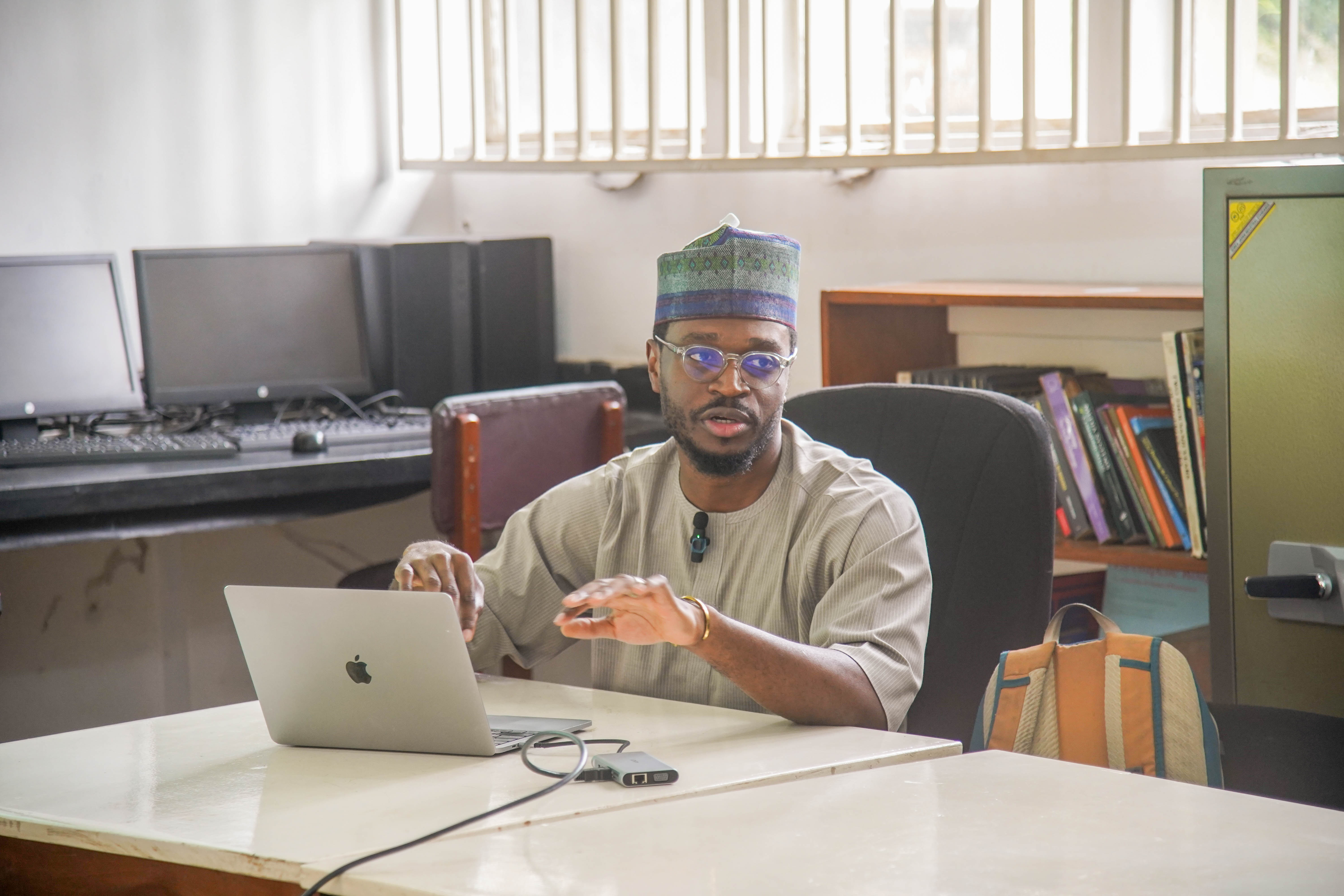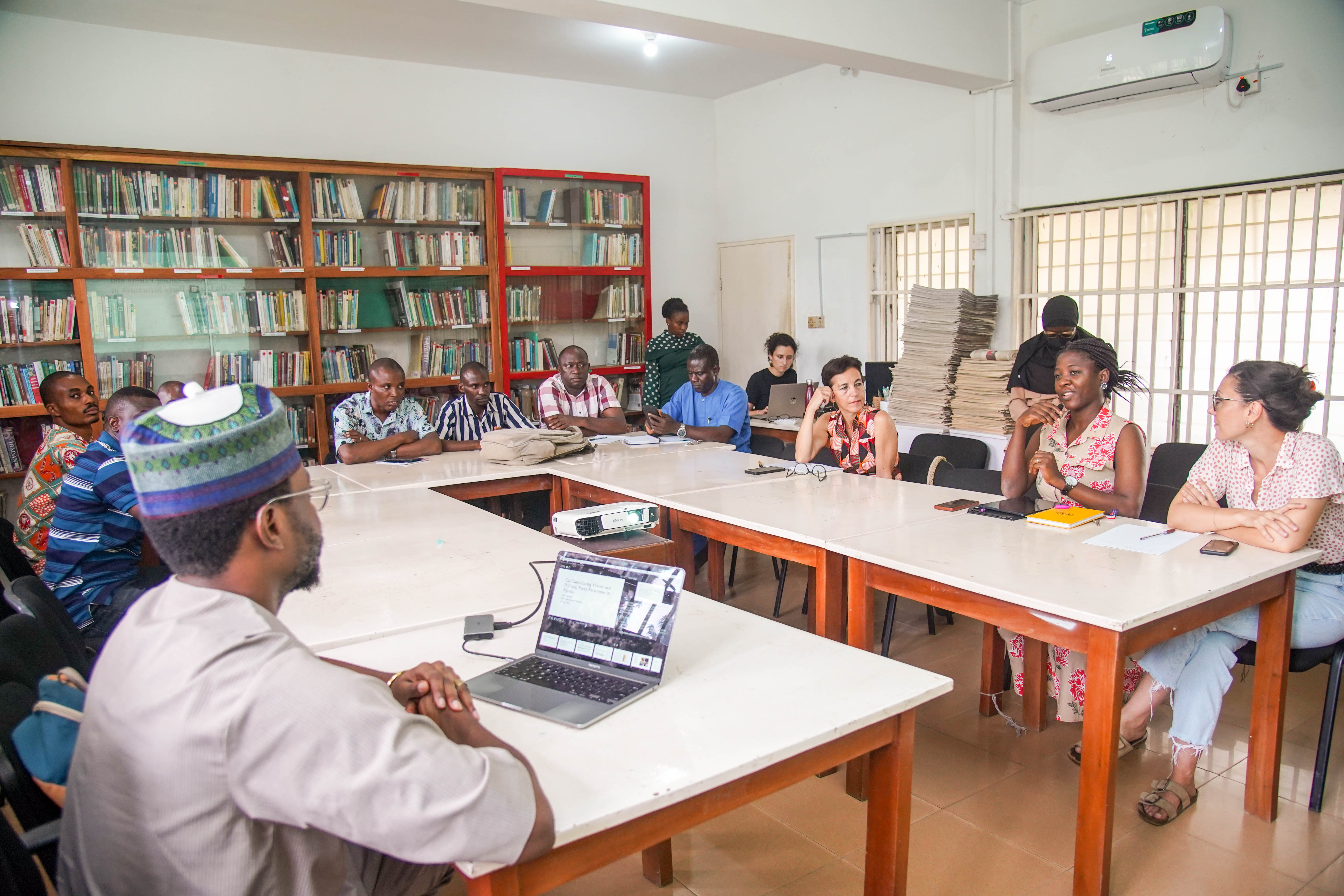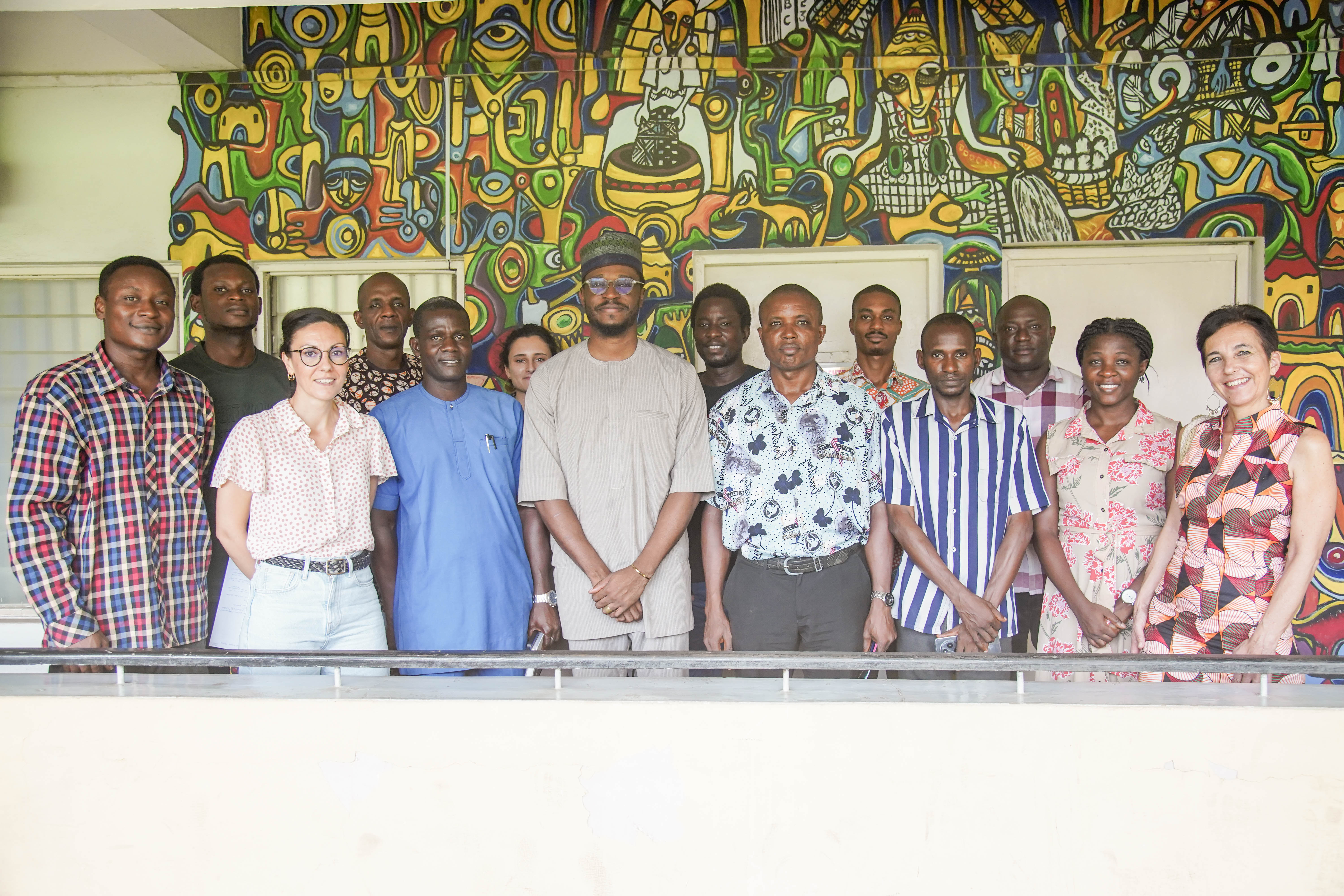Methodological Seminar - On glass-eating priests and political party structures in Nigeria - Dr Sa'eed Husaini
 On 15 April, we welcomed Dr Sa'eed Husaini from the Centre for Democracy and Development in Abuja for our latest Methodological Seminar "On glass-eating priests and political party structures in Nigeria". Reflecting on his PhD research in Zaria and most of all Ekiti states, he highlighted how to manage positionality as a researcher in contact with political parties. Describing more specifically his own work, he also encouraged the attendants to question the dominant discourses of academia, which may not be as neutral as it appears.
On 15 April, we welcomed Dr Sa'eed Husaini from the Centre for Democracy and Development in Abuja for our latest Methodological Seminar "On glass-eating priests and political party structures in Nigeria". Reflecting on his PhD research in Zaria and most of all Ekiti states, he highlighted how to manage positionality as a researcher in contact with political parties. Describing more specifically his own work, he also encouraged the attendants to question the dominant discourses of academia, which may not be as neutral as it appears.
Scroll below for a full summary of Dr Husaini's presentation.
Dr. Husaini began by doing a short recap of the existing knowledge in the study of African political parties. Referring to works by Carbone[1], Leibowitz and Ibrahim, he described how, in the first decade after the 90s shift to democratic regimes, a rather negative view developed of African parties are weak 'empty shells'. This conclusion did raise the question of how those parties were still able to distribute patronage so effectively. Following this observation, some researchers did tackle the topic of party organization in Africa. However, they remained focused on the period surrounding the elections, inadvertently strengthening the idea that said structures only existed when a vote was at play.
Finally, a new generation of researchers more broadly interrogated this idea. Dr Husaini cited in particular the work of Mathias Krönke, who created an Afrobarometer. Through a survey asking the citizens when and where they encountered political parties, he uncovered that, contrary to preconceptions, Africans actually interacted with parties a lot outside of election periods (through rallies, their own activism inside a party etc.)[2]. A historical approach appears to demonstrate that citizens' contact with political parties in their daily life has risen over the past 20 years.

Nigeria particularly was the country with one of the highest percentage of people meeting party officials and attending rallies. Breaking it down by state, the 2021 Afrobarometer showed that the North and North-East of the country reported the highest percentage of contact. For example, in Yobe, nearly 50% of people reported some form of contact. These numbers do challenge our preconceptions on political parties, but only present information at a defined moment in time. Dr Husaini cited this as the reason why he decided to also take a qualitative approach, to understand the dynamics on the field.
Dr Husaini therefore decided to study the political activity in the town of Ado, in Ekiti state. He conducted a first fieldwork between August and December 2016, during which he attended both PDP and APC meetings. He focused on the ward level, between the LGA and polling units levels. What he saw was that the gatherings were also parties, in the first sense of the word: members would meet at birthdays, funerals and rallies would be a moment for chatting and drinking. They also provide citizens a platform for expressing themselves, as a microphone is often passed around for people to talk.
He also presumed that the reason why people attend those party functions is to be entertained, as they are also the moment for artistic and spiritual performances. Detailing the act of the 'glass-eating priest' celebrating the Shango deity, he noted how those rallies were also an identity-building moment. Shango is considered a 'foreign deity' in Ekiti, as it is associated with Oyo, a state from which they struggled to separate. By bringing it in those rally, they are participating in the construction of a shared identity across state lines, of a 'Yoruba-ness'. He touched on this idea as a relatively new one, which like all identities, is an ever-changing conception.
But the party activities are not just spectacles. Before elections, the ward level was dissolved and party officials demanded that they redirect to the polling station and canvassing work, more traditional party organization. Moreover, the different constraints faced by the party members require a different organization: the election time came simultaneously with fuel and cash shortages. Being at the polling station, in a more decentralized structure, was advantageous because it facilitated canvassing on foot. The members also each contribute some money to a shared pot, redistributed to permit the continuation of party activities. Since in Nigeria, more often than not, funding does not come from the federal level, parties found new ways of structuring themselves.
To conclude, he explained that political parties do exist in Nigeria, and are organized, but not in a way considered relevant in academia where the ideal is the XXth century European party structure. Therefore, the theory of the lack of political parties in Africa is more a reflection on a set of values than of reality. He added that the way research is structured in Africa may also play a role: indeed it is often funded by NGOs, who have an interest in emphasizing issues they can fix. On a methodological note, he highlighted the importance of mixed methods of study, and of returning several times on the field, as the temporality of the fieldwork affects the conclusions.
The intervention was followed by a lively Q&A in which participants and Dr Husaini discussed the role of political parties as social networks, how to negotiate the entry in political parties, manage his own positionality as a researcher and his choice to conduct the study in Ado.
Sources:
[1] Carbone, G. (2007). Political Parties and Party Systems in Africa: Themes and Research Perspectives. World Political Science, 3(3). https://doi.org/10.2202/1935-6226.1023
[2] Krönke, M., Lockwood, S. J., & Mattes, R. (2021). Party footprints in Africa: Measuring local party presence across the continent. Party Politics, 28(2), 208-222. https://doi.org/10.1177/13540688211008352 (Original work published 2022)


Social Media
Mailing List